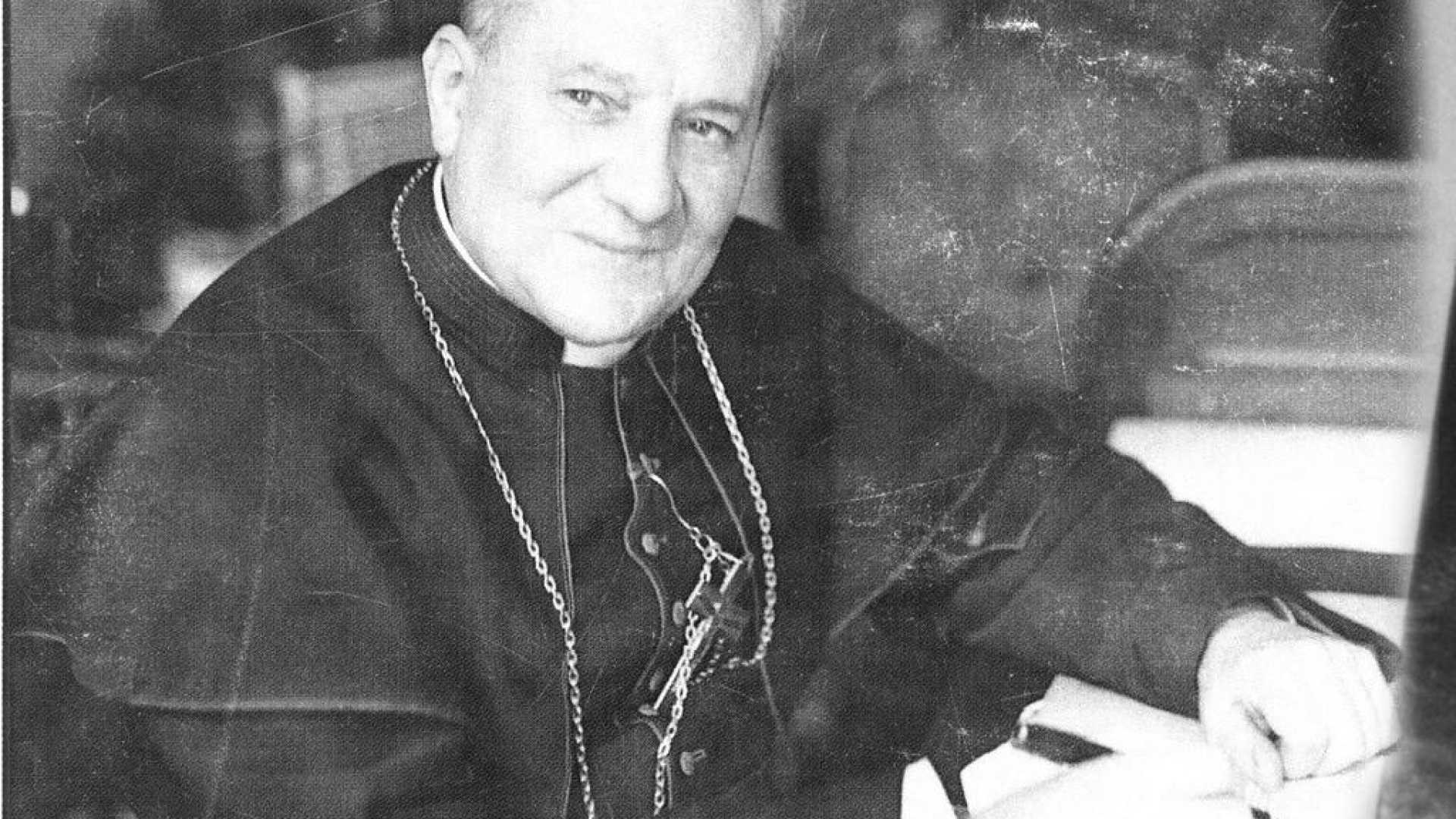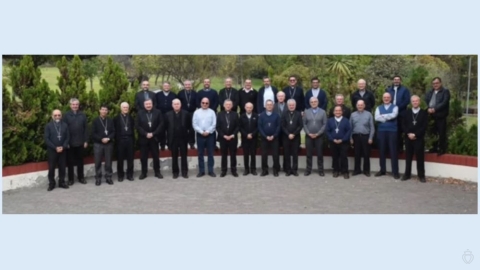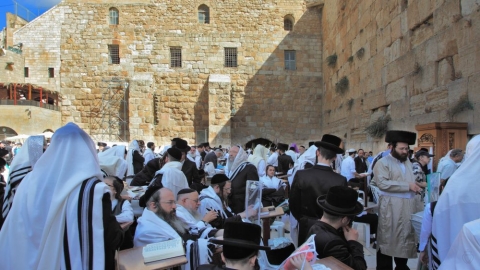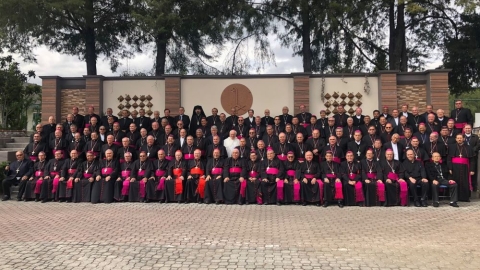Remembering the 1944 Clandestine Priestly Ordination in Dachau, Germany

Mgr Gabriel Piguet (1887-1952)
Every year the victims of wars, especially from 1939-1945, are commemorated. Selective memory leaves certain exceptional figures unmentioned. FSSPX.News would like to recall an important event that took place in Dachau in 1944: the clandestine ordination of a priest by the only French bishop who was deported.
“The episcopal ring forged in brass, the pectoral cross sculpted out of a piece of oak wood, and even a secretly concocted miter”: the bishop thus adorned on Gaudete Sunday, December 17, 1944, recounts Giorgio Bernadelli in Vatican Insider, was nothing more than a number in Dachau: ID 103,001. It was Bishop Gabriel Piguet, bishop of Clermont-Ferrand, the only French bishop who was deported to a concentration camp during the war. But his presence was providential, for he was able to ordain a priest.
The Priestly Ordination of Karl Leisner
During the improvised ceremony, a Jewish fellow cellmate stayed outside and played his violin to distract the guards. Inside what was called the “priests’ barracks”, block 26, the French prelate imposed his hands on Fr. Karl Leisner, a young German deacon dying of pulmonary tuberculosis, who had been deported for imprudently commenting on the failed attempt on Hitler’s life on November 8, 1939. He had been imprisoned in Dachau since December of 1940.
All the rules of canon law were observed as perfectly as possible for this extraordinary ordination. The dismissorial letters were obtained from Bishop Clemens von Galen, bishop of Münster, the young deacon’s diocese, as was the approval of the Ordinary, Cardinal Michael von Faulhaber, then bishop of Munich. Thanks to a young woman who was preparing to enter the religious life and was in touch with one of the many commandoes working in the fields, they were able to obtain sacred chrism and the Pontifical missal containing the ordination rite.
The new priest’s health was so precarious that he was unable to celebrate his first and only Mass until December 26. He died of tuberculosis on August 12, 1945, three months after the liberation of the camp by the Americans. On the last page of his journal, he wrote, “Lord, bless my enemies as well!”
As for Bishop Piguet, he was able to return to his diocese, where he died in 1952. His story is worth telling.
Bishop Gabriel Piguet: A Bishop with an Exceptional Destiny
Born in Macon in 1887, he was ordained a priest in 1920. He became vicar at the cathedral of Autun after earning his doctorate in theology at the Angelicum in Rome. In 1914, at the age of 27, he enlisted as a nurse. Gravely wounded in September of 1915 in the forest of Apremont, he was evacuated at the order of General Philippe Pétain. He was decorated with the cross of war.
Nominated bishop of the diocese of Clermont on December 7, 1933, he was consecrated on February 17, 1934. He supported France’s entry into the war on September 3, 1939: “Today, the service of unanimous France against Nazi tyranny allied with Bolshevik barbary has called many of you to the flag. Once again, the cause of justice, freedom, peace and Christian civilization has France and her allies for its champion.” He described the arrival of the German armies as “the motorized Ostrogoths of the 20th century.”
After the armistice, he supported Marshal Pétain, whom he hailed as the savior of Verdun. He adhered to the French Legion of Fighters and worked to renew the spirit of the country according to the principles of the national Revolution. In 1942, after the invasion of the free zone and the increase in the invader’s retaliations, he distinguished himself by saving many Jews, providing hiding places for them in Catholic institutions. He personally intervened directly to save several children, which earned him the posthumous decoration of the “Righteous among the Nations” medal, a distinction created by the State of Israel in 1953.
He also helped Jean de Viry, a priest of the diocese of Annecy, who was involved in the resistance and acted as chaplain for the boy and girl scouts of France. He welcomed him in his diocese under a false name. After being denounced, Bishop Piguet was summoned by the Gestapo in Clermont Ferrand on May 28, 1944.
He would later say: “It was Pentecost Sunday, May 28, 1944. After the Pontifical High Mass I celebrated in my cathedral, a German policeman spoke to me at the threshold of the episcopal palace, and ordered to me to go directly to see the chief of the Gestapo in Clermont Ferrand.” He was imprisoned in Clermont, where he was treated brutally before being transferred to the camp in Struthof, in Alsace, and then to Dachau in Bavaria in September of 1944.
Doubtless thanks to the intervention of Pope Pius XII, the conditions of Bishop Piguet’s detention improved on January 22, 1945, when he left block 26 for the distinguished prisoners’ bunker. Three months later, the camp was liberated. The bishop returned triumphantly to his cathedral in Clermont on May 14, 1945.
And yet, on July 26, 1944, the French Ministry of the Interior had dared to add his name to the list of the prelates “who have caused the greatest scandal during the occupation” (sic). Nuncio Roncalli opposed his destitution and that of most of the twenty-five other bishops and cardinals that the French government wished to expel. Bishop Piguet, a hero of the Great War, an upright and loyal bishop, a deported member of the resistance, thus remained at the head of the diocese of Clermont until his death at the age of 65 on July 3, 1952.
Victor in vinculis
In Dachau, 2,579 Catholic priests, seminarians, and religious were savagely imprisoned. 1,034 lost their lives there, including 868 Poles. 56 members of the clergy who died in Dachau have been raised to the dignity of the altar after processes confirming their heroic practice of Christian virtue. The concentration camp in Dachau is the world’s largest cemetery of Catholic priests.
On the makeshift crozier sculpted for the ordination of Karl Leisner, the prisoners engraved the words Victor in vinculis – victorious in chains.
Sources: Vatican Insider / Le Figaro / Ajpn / FSSPX.News – 2/6/2018





